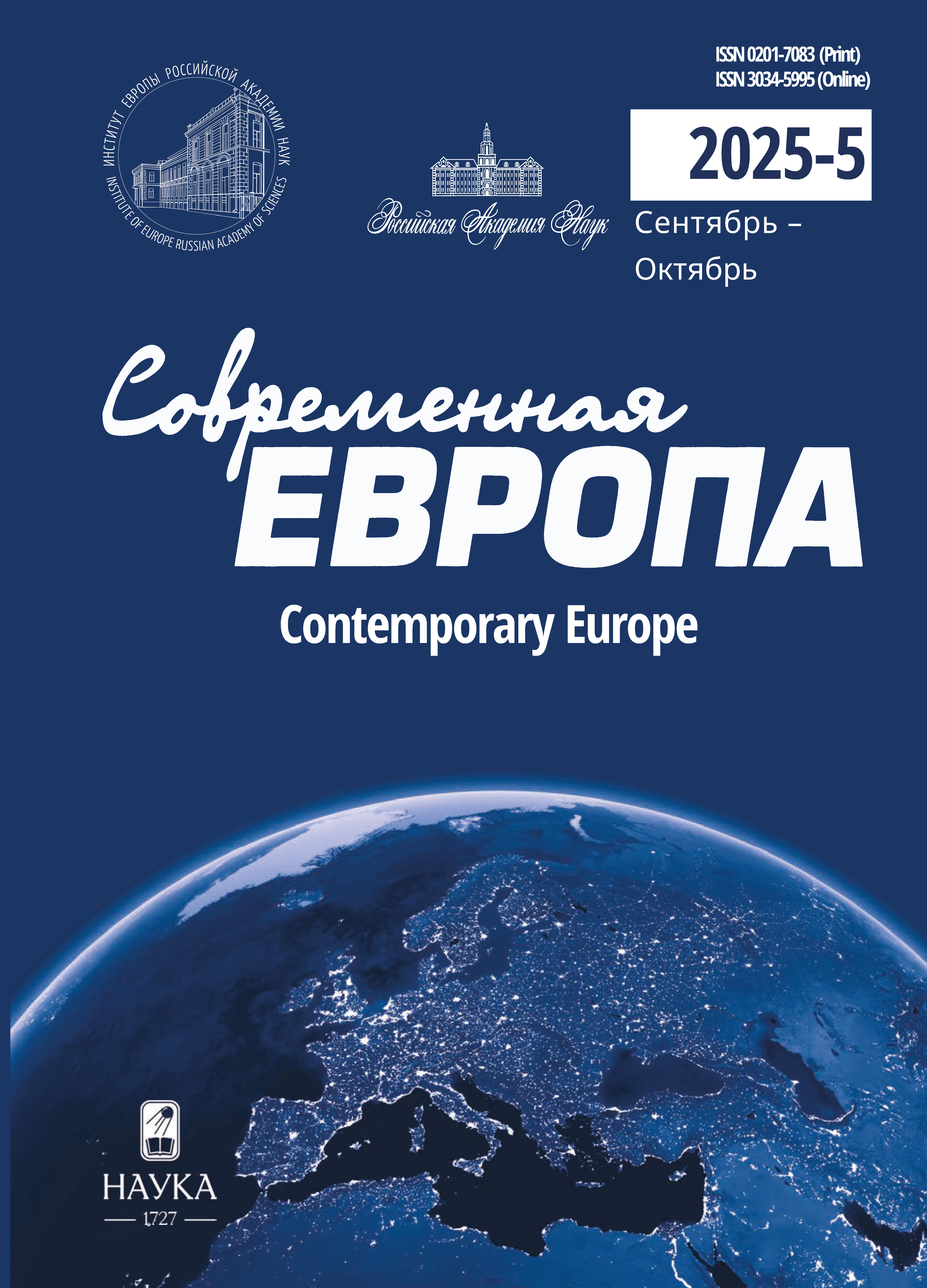EU interests in Northern Europe and the Arctic: challenges for Russia
- Authors: Plyusnin R.M.1, Skripka I.R.1, Lesnoy D.S.1
-
Affiliations:
- Institute of Europe Russian Academy of Sciences
- Issue: No 7 (121) (2023)
- Pages: 153-164
- Section: Articles
- URL: https://rjsvd.com/0201-7083/article/view/652180
- DOI: https://doi.org/10.31857/S0201708323070124
- EDN: https://elibrary.ru/RZCYZX
- ID: 652180
Cite item
Abstract
The article is devoted to the consideration of the interests of the European Union in the Arctic and Northern Europe from the point of view of threats to the security of the Russian Federation. The military sphere remains outside the scope of this study. As the main source of information about potential threats, the authors considered the EU Arctic strategy as a whole, and similar documents of individual Nordic countries. In addition, the statements of local politicians and public figures were analysed, as well as the real actions carried out by the leadership of these states and territories in relation to Russia. It was concluded that the interests of the European Union in the Arctic and Northern Europe do not pose any serious threat to Russia's security outside the military sphere. Most of the methods of pressure on our country have already been used, and further actions will potentially have a greater negative impact not on Russia, but on those states and territories of the region that will undertake them. Nevertheless, the spread and recognition at the world level of European standards and requirements in the field of nature protection, mining and green energy can lead to troubles for the Russian economy. In addition, there are risks in case of imposing sanctions by the Faroe Islands and of Norway's blockade of the Svalbard archipelago.
Keywords
About the authors
Roman Mikhaylovich Plyusnin
Institute of Europe Russian Academy of Sciences
Email: senterix@yandex.ru
Moscow, Russia
Ivan Romanovich Skripka
Institute of Europe Russian Academy of Sciences
Email: iv.skripka@yandex.ru
Moscow, Russia
Denis Stanislavovich Lesnoy
Institute of Europe Russian Academy of Sciences
Email: dlesnoygorbachev@gmail.com
Moscow, Russia
References
- Бажан А.И., Рогинко С.А. (2020) Пограничный корректирующий углеродный механизм ЕС: статус, риски и возможный ответ. Аналитические записки Института Европы РАН. № 44. С. 1-14. DOI: http://doi.org/10.15211/analytics442020
- Жильцов С.С. (2022) Арктический вектор политики ЕС. Современная Европа. № 3. С. 49-61. doi: 10.31857/S0201708322030044.
- Журавель В.П. (2023) Арктика в 2022 г.: итоги и перспективы. Научно-аналитический вестник ИЕ РАН. № 1. С. 95-102. DOI: http://dx.doi.org/10.15211/vestnikieran1202395102
- Плюснин, Р.М. (2023) Внешняя торговля Фарерских островов в 2014-2022 гг.: разворот на Россию. Научно-аналитический вестник ИЕ РАН. № 1. С. 114-122. doi: 10.15211/vestnikieran12023114122
- Тимошенко Д.С. (2021) Арктическая стратегия Еврокомиссии: вызов для России или мера вынужденной интеграции? Аналитические записки Института Европы РАН. № 32. С. 32-39. DOI: http://doi.org/10.15211/analytics43220213239
- Тимошенко Д.С. (2023) Программа председательства Норвегии в Арктическом совете. Аналитические записки Института Европы РАН. № 25. С. 18-25. DOI: http://doi.org/10.15211/analytics42520231825
- Canova E. (2023) The European Union and its Member States in the Arctic: Official Complementarity but Underlying Rivalry? The Arctic Institute. 08.08. URL: https://www.thearcticinstitute.org/european-union-member-states-arctic-official-complementarity-underlying-rivalry/(accessed: 14.10.2023).
- Middleton A. (2023) Navigating Uncertainties: Finland's Evolving Arctic Policy and the Role of a Regionally Adaptive EU Arctic Policy. The Arctic Institute. 22.08. URL: https://www.thearcticinstitute.org/navigating-uncertainties-finland-evolving-arctic-policy-role-regionally-adaptive-eu-arctic-policy/(accessed: 15.10.2023).
- Østhagen A. (2022) Norway's Arctic Policy: High North, Low Tension? Arctic Fever. Ed. by A. Likhacheva. Palgrave Macmillan, Singapore. DOI: https://doi.org/10.1007/978-981-16-9616-9_11
Supplementary files











